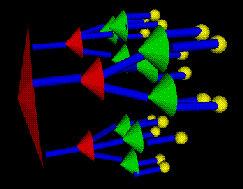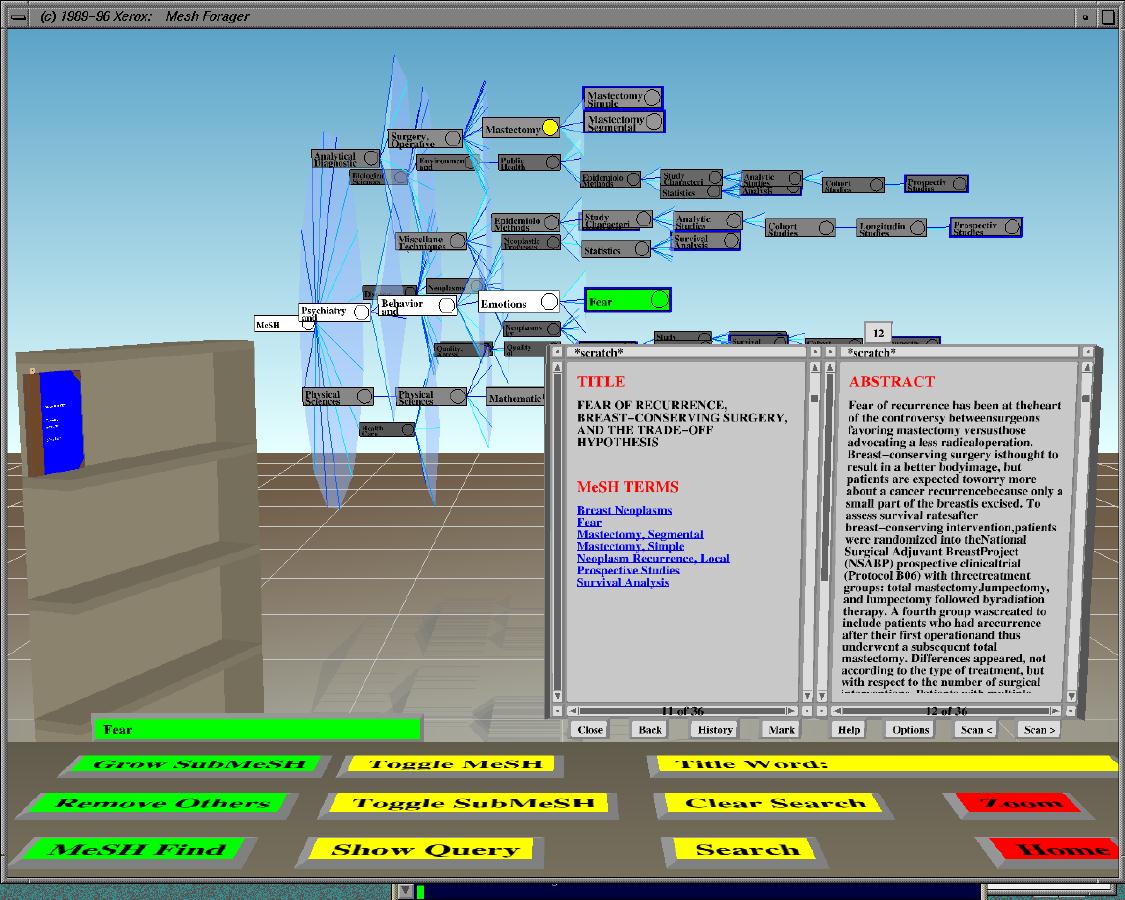Cone Trees
Jump to navigation
Jump to search
Authors
Short description
The task of managing and accessing large information spaces is a problem in large scale cognition. Emerging technologies for 3D visualization and interactive animation offer potential solutions to this problem, especially when the structure of the information can be visualized. We describe one of these Information Visualization techniques, called the Cone Tree, which is used for visualizing hierarchical information structures. The hierarchy is presented in 3D to maximize effective use of available screen space and enable visualization of the whole structure. Interactive animation is used to shift some of the user's cognitive load to the human perceptual system.
[George Robertson et al., 1991]
Suitable Datatypes
Suitable Datatypes for this information visualization technique are hierarchical information structures.
Figures
Each tree node is the apex of a cone. The children of each node are drawn around the base of its associated cone.

Examples and use cases
Layout of a simple Cone Tree [Robertson et al., 1991]
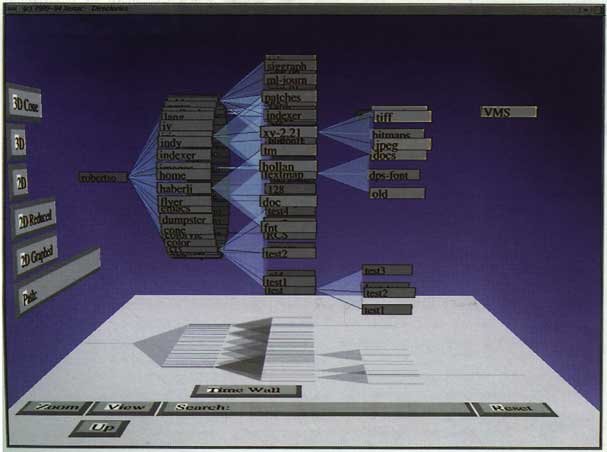
Cat-a-Cone: An Interactive Interface for Specifying Searches and Viewing Retrieval Results using a Large Category Hierarchy
[Hearst and Karadi, 1997]
The Cat-a-Cone is a novel user interface that integrates search and browsing of very large category hierarchies with their associated text collections. One key insight is the separation of the representation of category labels from documents, which allows the display of multiple categories per document. Another key component is the display of multiple selected categories simultaneously, complete with their hierarchical context. Shown are the results of a search on category labels Mastectomy and Radiation Therapy in conjunction with the text word "lumpectomy" on a breast cancer subset of the MEDLINE collection. A ConeTree displays category labels and a WebBook shows retrieval results. The lefthand page shows the title and the category labels associated with the document. The righthand page shows the abstract associated with the document.
[Hearst and Karadi, 1997]
Lyberworld [Hemmje, 1994]
LyberWorld is a 3D visualization user interface supporting fulltext retrieval.
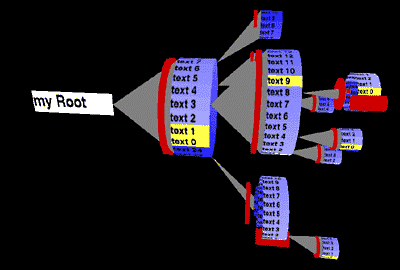
A file-system displayed as cone-tree
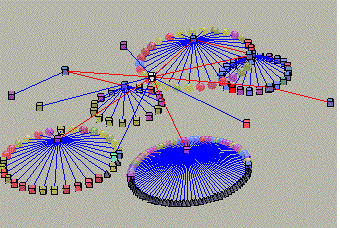
Evaluation
References
- [Robertson et al., 1991] George Robertson, Jock D. Mackinlay, Stuart Card. Cone Trees: Animated 3D Visualizations of Hierarchical Information. In Proceedings of the ACM CHI 91 Human Factors in Computing Systems Conference, pages 189-- 194, April 28 - June 5, 1991, New Orleans, Louisiana, June 1991. Association for Computing Machinery
Evaluation References
- [Cockburn and McKenzie, 2000] Andrew Cockburn and Bruce McKenzie. An Evaluation of Cone Trees. In People and Computers XIV: British Computer Society Conference on Human Computer Interaction 2000, p425--436. Springer-Verlag.
- [Hearst and Karadi, 1997] Marti A. Hearst and Chandu Karadi. Cat-a-Cone: An Interactive Interface for Specifying Searches and Viewing Retrieval Results using a Large Category Hierarchy. In Proceedings of the Twentieth Annual International ACM SIGIR Conference, pages 246-- 255, Philadelphia, PA, July 1997
- [Hemmje, 1994] Matthias Hemmje, LyberWorld - A 3D Graphical User Interface for Fulltext Retrieval. Created at: May 7-11 1995. Retrieved at: April 13, 2006. http://delivery.acm.org/...
